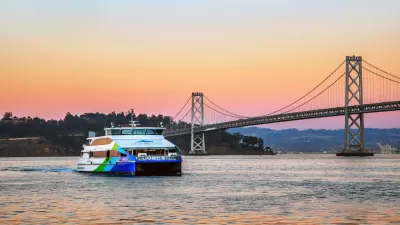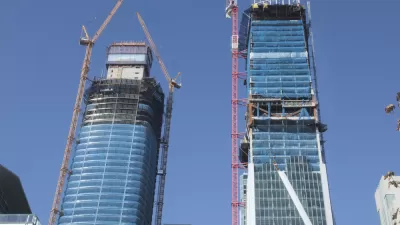Cities are becoming the new economic engines due to growing sectors in technology and knowledge production. Yet, cities must recognize with that transformation there comes not only opportunities but also new challenges.
Prior to the rise of the car and the trucking industry, cities were the best places for investment. They provided access to markets through ports, rivers, and railroads. They had large pools of unskilled labor living near factories, and they were relatively dense making business easier for firms. Significantly, capital, the cultural sociologist Zygmunt Bauman claims, was “heavy” and enmeshed in place: "Routinized time tied labor to the ground, while the massiveness of the factory buildings, the heaviness of the machinery and, last but not least, the permanently tied labor ‘bonded’ the capital. Neither capital nor labor was eager, or able, to move."
Urban centers were hubs of industry, fostering, in the words of political scientist Douglas Rae, a “civic fauna.” The rich and the poor lived close together and intermingled by participating in common civic projects. Although hardly utopias—cities struggled with public health problems, pollution, and ethnic and racial antagonism—the flow of capital through cities created jobs and a rich cultural infrastructure. But as transportation and communication technology advanced, urban investment slowed, moving away from the expensive real estate and high taxes of the city toward greener pastures in the county. As a result, many cities over the last century experienced massive unemployment and high crime as populations followed the flow of capital to middle-class enclaves in the suburbs.
Yet, today, our cities again are seeing fresh investment due to new emerging economic sectors in knowledge and technology. Instead of building factories, investments in the burgeoning knowledge economy focus on human capital, innovation, and lighter technologies. These new sectors have resulted in job growth in software and pharmaceutical development, biotech, digital entertainment, and financial innovation, among other fields.
FULL STORY: Why the New Flows of Capital Matter for Cities

Maui's Vacation Rental Debate Turns Ugly
Verbal attacks, misinformation campaigns and fistfights plague a high-stakes debate to convert thousands of vacation rentals into long-term housing.

Planetizen Federal Action Tracker
A weekly monitor of how Trump’s orders and actions are impacting planners and planning in America.

Chicago’s Ghost Rails
Just beneath the surface of the modern city lie the remnants of its expansive early 20th-century streetcar system.

Bend, Oregon Zoning Reforms Prioritize Small-Scale Housing
The city altered its zoning code to allow multi-family housing and eliminated parking mandates citywide.

Amtrak Cutting Jobs, Funding to High-Speed Rail
The agency plans to cut 10 percent of its workforce and has confirmed it will not fund new high-speed rail projects.

LA Denies Basic Services to Unhoused Residents
The city has repeatedly failed to respond to requests for trash pickup at encampment sites, and eliminated a program that provided mobile showers and toilets.
Urban Design for Planners 1: Software Tools
This six-course series explores essential urban design concepts using open source software and equips planners with the tools they need to participate fully in the urban design process.
Planning for Universal Design
Learn the tools for implementing Universal Design in planning regulations.
planning NEXT
Appalachian Highlands Housing Partners
Mpact (founded as Rail~Volution)
City of Camden Redevelopment Agency
City of Astoria
City of Portland
City of Laramie





























